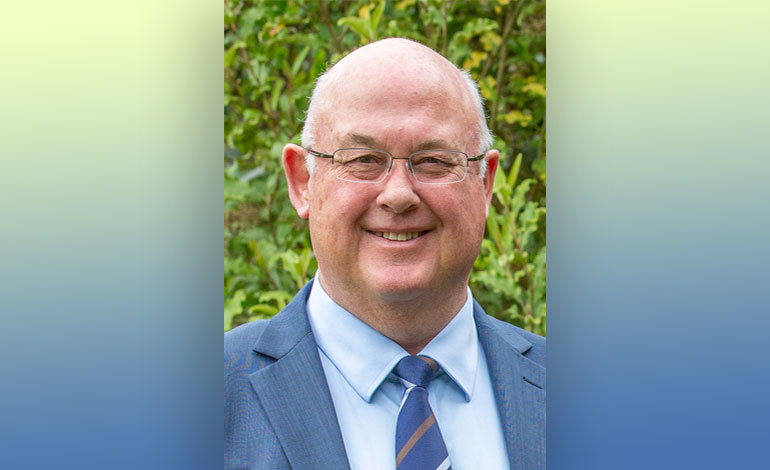New Zealand’s longest-serving local body chief was farewelled into retirement last month and lauded for his ‘extraordinary’ contribution to the Taranaki community.
Originally from eastern Southland, Basil studied at Otago University. Later in his career he attended leadership courses at Harvard University in the US, and at the University of Reading and Ashridge in the UK. Basil Chamberlain has led the Taranaki Regional Council since it was established in 1989, after being employed by its predecessor in 1980. He also served as a Justice of the Peace, as a director of the Taranaki Rugby Football Union, and as a member and chair of the Board of Trustees for Street John Bosco School, New Plymouth.
Basil was originally been employed by the council in 1980 as a Water Resources Officer for the Taranaki Catchment Commission and Regional Water Board.
“He’s been fully committed to the region for those 40 years and he’s made an extraordinary contribution,” says the council chair, David MacLeod.
“Taranaki is known as a place of creative, innovative and successful initiatives, and Basil has been at the forefront.
“The Riparian Management Programme and Towards Predator-Free Taranaki are just two notable examples of his approach: careful forethought and planning, adaptability as lessons are learned or circumstances change, and strong community involvement. No wonder these programmes are successful.
“And being the man that he is, Basil is always reluctant to claim any personal credit for Council successes under his leadership. He’ll firmly tell you they are the results of team effort by staff, Councillors and, most importantly, the Taranaki community itself.”
He says Chamberlain’s team-first approach is also reflected in the way he attracted talented and committed people to work for the Council and mentored them effectively. Many have gone on to prominent roles in other regions or nationally.
“I think of Stratford as the country’s university of Regional Councils, thanks largely to Basil’s efforts.” MacLeod says he personally owes Chamberlain a debt of gratitude.
“I became the chair at a relatively young age, and greatly appreciated the guidance and wisdom offered by Basil and my Council colleagues.
“Over the years, Basil and I have made a lot of trips together as chair and chief executive and discussed many issues at great depth. Basil is direct and honest with his advice and has contributed much to my personal development and Chairmanship skills.”
MacLeod’s predecessor as chair, David Walter, also says he greatly valued Basil’s ability to condense complex issues into clearly understandable language without becoming entangled in excess bureaucracy or officiousness.
In particular, he praised his approach to the uniquely Taranaki challenges involved in regulating major oil and gas activity, as well as the part he played in bringing Tupare, Hollard Gardens and Pukeiti into regional public ownership, and ensuring they are widely appreciated and enjoyed.
“We’ve seen entrance fees removed and far more people visiting the properties and taking advantage of the upgrades that have occurred under Council ownership.
“This is but one instance of Basil’s foresight and ability to deliver tangible developments for the betterment of the region and its people.”
Walter adds that the council’s performance under Basil’s watch earned it numerous awards, including being rated by Federated Farmers as the best-performing Council in the country in 2007.
He was also honoured with an Outstanding Person Award by the Resource Management Law Association in 2013.
Basil Chamberlain is being replaced by Steve Ruru who has been the chief executive of Southland District Council since 2014, having previously led both the Kaipara District Council and the Thames-Coromandel District Council.
He resigned from the Southland District Council to be closer to extended family in Taranaki and starts with the Taranaki Regional Council next month (September).
Working in Taranaki will be a challenge, he says.
“It’s a great opportunity for a new challenge and the chance to lead a regional council during an exciting period in the local government sector, particularly with the ongoing focus on the broader water agenda.”



